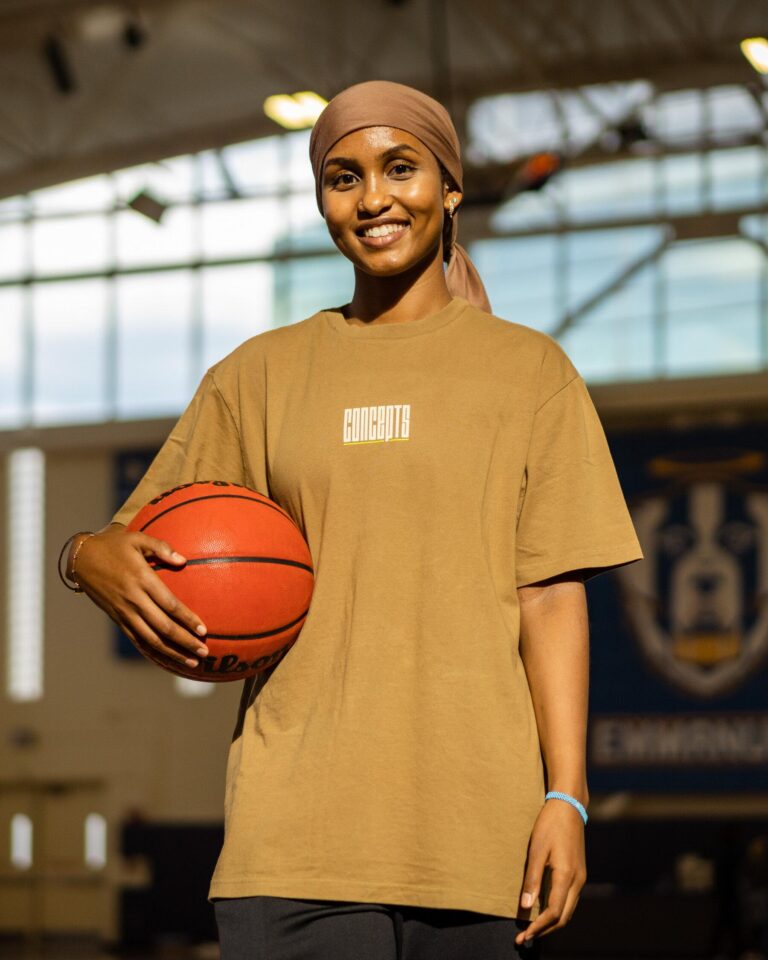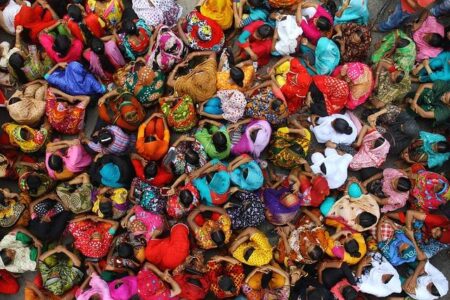A basketball player in France has been sidelined for wearing a headscarf during a game, igniting a heated debate over religious attire in sports. This incident comes amid growing momentum toward a potential nationwide ban on headscarves across all athletic competitions. The controversy highlights the ongoing tension between secular policies and religious freedoms in French public life, as authorities weigh the implications of such a ban on athletes and broader society.
Basketball Player Sidelined Over Headscarf Sparks National Debate
Controversy erupted in France after a prominent female basketball player was barred from competing due to wearing a headscarf during matches. The incident has thrust the nation into a heated debate over the intersection of religious freedom, secularism, and sports regulations. Advocates for the player’s right argue that personal expression should be protected within athletic arenas, emphasizing inclusivity and respect for cultural identity. Conversely, critics maintain that wearing religious symbols in sports conflicts with France’s strict secular policies and the principle of neutrality in public spaces.
The discussion has sparked broader conversations about the potential nationwide ban on headscarves across all sports disciplines. Key arguments presented by both sides include:
- Supporters of the ban cite the need to maintain neutrality and uniformity in sports gear to avoid religious or political affiliations influencing athletics.
- Opponents highlight the importance of accommodating diversity and fostering a welcoming atmosphere for all athletes, regardless of their faith.
- Some experts warn that a ban could lead to increased marginalization of minority communities and affect France’s international reputation on human rights.
| Stakeholder | Position | Main Concern |
|---|---|---|
| Athlete Unions | Oppose ban | Athlete rights & inclusivity |
| Sports Federations | Support ban | Uniformity & secularism |
| Human Rights Groups | Oppose ban | Freedom of religion |
Implications of a Potential Ban on Headscarves Across French Sports
The French government’s consideration to extend the ban on headscarves into all sports ignites a fierce debate surrounding personal freedoms and secularism. This potential policy shift comes after a rising number of high-profile cases like that of the sidelined basketball player, highlighting the tension between religious expression and national sporting regulations. Advocates for the ban argue that uniformity is essential to upholding the principles of *la├»cit├®*, which promote secularism and equality in public spaces.
Conversely, critics warn that this move may alienate minority communities and restrict athletes’ rights to self-expression. Key concerns include:
- Impact on inclusivity: Potential exclusion of athletes who wear headscarves for religious reasons.
- International ramifications: Possible conflicts with global sports regulations that protect religious attire.
- Social division: Escalation of cultural tensions within sports communities and beyond.
| Stakeholder | Position | Key Concern |
|---|---|---|
| French Sports Federations | Supportive | Maintaining secularism |
| Religious Advocacy Groups | Opposed | Freedom of expression |
| International Sports Bodies | Neutral/Concerned | Compliance with global standards |
Balancing Secularism and Religious Freedom in Competitive Athletics
As France grapples with the intersection of secularism and religious expression, the controversy surrounding a basketball player’s sidelining for wearing a headscarf has ignited a wider debate. Proponents of the proposed ban argue that sports should remain a neutral ground, free from visible religious symbols to preserve fairness and unity among athletes. They stress that secularism in public life is essential to maintaining equality and preventing any form of religious influence or division within competitive athletics.
However, critics question whether such measures infringe upon individual freedoms and the right to religious identity. They emphasize that religious freedom is a fundamental human right that should be respected, even in the realm of sports. The debate highlights several key considerations:
- Balancing equal access to participation with respect for personal beliefs
- Ensuring safety and fairness without imposing restrictive dress codes
- Understanding the cultural and social impact on minority athletes
| Key Issue | Arguments for Ban | Arguments Against Ban |
|---|---|---|
| Secularism | Maintains neutrality and public order | Restricts personal religious expression |
| Safety | Ensures uniformity and reduces hazards | Headscarves can be designed safely |
| Equality | Prevents visible division among players | May marginalize minority groups |
Calls for Inclusive Policies to Protect Athletes’ Cultural and Religious Rights
Advocates and sports organizations around the world are urging governments and federations to implement inclusive policies that safeguard athletes’ rights to express their cultural and religious identities. The recent incident involving a basketball player sidelined for wearing a headscarf has amplified concerns over discriminatory practices in sports. Critics argue that imposing bans on religious attire not only violates personal freedoms but also undermines the principles of diversity and fairness that sport should champion.
Calls for action emphasize the necessity of rules that accommodate diverse beliefs without compromising athletic performance or safety. Key demands from activists include:
- Clear guidelines protecting religious garments during competition
- Mandatory diversity training for coaches and officials
- Creation of independent bodies to oversee and enforce inclusion policies
- Regular reviews of sporting regulations in consultation with affected communities
These measures aim to ensure that no athlete is forced to choose between their faith and their passion for sport, fostering an environment where talent and commitment prevail over uniformity.
| Policy Element | Impact |
|---|---|
| Guidelines on Religious Attire | Promotes equal participation |
| Diversity Training Programs | Reduces unconscious bias |
| Independent Oversight Committees | Enhances trust and transparency |
| Community Consultation | Ensures culturally sensitive policy-making |
In Retrospect
As France considers expanding its ban on headscarves across all sports, the case of the sidelined basketball player highlights the deepening tensions between secular policies and religious expression. This unfolding debate raises critical questions about inclusivity, personal freedoms, and the role of sports in reflecting a diverse society. How the country navigates this issue will be closely watched both domestically and internationally, as the balance between secularism and individual rights remains a contentious and evolving challenge.




